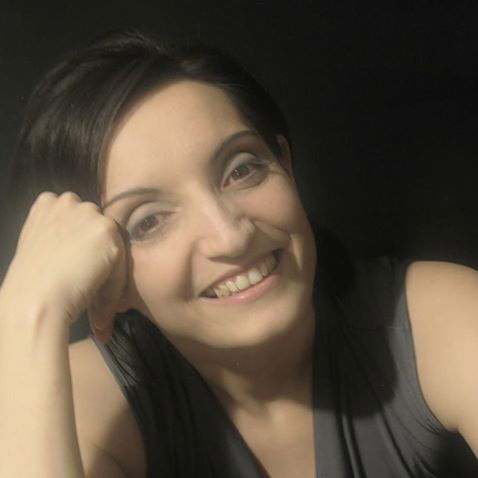Antonella DiGiulio
Piano
About
Antonella excels as performer, theorist and pedagogue.Antonella Di Giulio
The German Newspaper Rheinische Post describes her music as performed ““… Mit ihrer kompetente Virtuosität, ihrer breit gespannten Expressivität wie ihrer enormen Klangsensibilität…“ (with competent virtuosity, broad expressivity as well as huge sound sensibility). In addition to her doctoral studies in Music Theory and Historical Musicology at the University at Buffalo, Antonella Di Giulio holds a Master Degree in piano performance from the same University, post -diploma certifications in piano performance from the Accademia Pucciniana and a Diploma from the Conservatorio Santa Cecilia in Rome.
She studied piano with Luigi Mostacci and Carla Giudici thank to a European Union’s fellowship, and then in Germany with Sontraud Speidel and Michael Rische. While living in Europe, she had the possibility to take lessons from some of the best pianist and pedagogues, like Oxana Yablonskaya, Paul Badura Skoda, L. Hoffmann, Marcello Abbado, Aquiles Delle Vigne, Silvana Libardo, Roberto Cappello, Takaschy Yamazaky, Elza Kolodin, Sergio Fiorentino, Klaus Kauffmann, Walter Blankenheim, and Eugene Mougilevsky; she studied under the tutelage of Professor Lola Tavor in Milan and Geneve; she was also awarded in many national and international competitions
As a researcher, her interests are in music cognition, theory of images in music, music as a language, harmonic language in contemporary music, Italian composers in the XX century, set theory and Mathematics, Semiotics. She has presented her research papers to several conferences in the United States, in Germany, in Italy and in the UK.
Her additional studies included pedagogy, courses for music-management as well as workshops for group lessons at the piano. She holds several teaching certifications for early childhood music education and music professional development. Antonella was music instructor in Germany for the “Bertelmann’s Foundation” for the Project “Kita macht Musik”, she has authored a music workbook for preschool children, a music theory workbook, and “Sequenze libere”; additionally she is editor for different magazines and journals, including “Mosaic: journal for music research” at the University at Buffalo.
She regularly performs for a number of associations and festivals as a soloist and in different chamber music ensemble with a particular interest in Italian composers (e.g. RAI – Italian television- International Festival Anzio – Petrassi, Messiaen- Kawai Europa – Krefeld, RWN – Krefeld, A.Gi.Mus., Roma, “Circolo sottoufficiali” Bologna, Marigliano, Klavierwochen Waldkraiburg, Ass. “Il Coretto” Bari, Monopoli, Festival Ostra, Weyden, Bayreuth, Plauen, Geldern, Mitrovica, Dortmund, Sonsbeck, Windhagen, Kalkar, Bremen, Firenze, Lipsia etc….)
Antonella has been acclaimed for her exciting and souveraen pianism and for her attention to the quality of sound, and has received particular praise for her outstanding pedagogical engagement. She teaches music theory, music appreciation, piano, early childhood music education, and general music education and holds the position of Artistic Director of numerous workshops and Festivals. She is often invited as a guest teacher and pianist for lectures, summer camps, and seminars, and is founder and director of Opus Zero, a non profit that aims to inspire young generation to embrace art in their life and to promote young artists during the early stages of their career. She has recently been nominated as mentor for the “Online Music Guild“.
Music
Scarlatti: Sonatas
Leo: Toccata
Paradisi:Toccata
Clementi: Sonatas, Sonatinas, Gradus ad Parnassm
Bach: English and french Suites, Wohltemperierte Klavier I- II, Partite,Concerto italiano
Haydn: Sonatas D-Dur, C -Dur
Mozart: Sonate A major, C major, C minor, B major, Fantasia c moll, Fantsia d moll, some sets of Variations, Adagio b minor, Konzerte 415, 466, 467, Concerto for two pianos
Beethoven: op.7,10 Nr.1, op. 26, op. 31 Nr.3, op. 49 Nr.1 and 2, op. 57, op. 79, op. 81, op. 109- Konzert Nr.1-3-4
Chopin: Etudes op. 10, 25 , Walzs, Ballades 1-2-3, Mazurkas, Scherzos
F. Liszt: Gnomenreigen, Waldesrauschen, Sonetti 47, 104, 123, Mefisto Valzer, Ballata Nr.2, Funerali, Vallee d‘O bermann, Funeraille, Etude Trascendentale Nr. 8, 9, 10, 12, Konzert 1, Dante Sonata
R. Schumann: Papillons, Kreisleriana, Kinderszenen, Carnaval, Konzert in a moll, Toccata, Arabesque
F. Schubert: Wanderer Fantasie, Sonate, Improptus, Walzes.
J. Brahms: Var. Paganini, op. 118.
Mendelssohn: Rondò Capriccioso, Variation serieuses, Lieder ohne Worte
C. Debussy: Estampes, Arabesques, Children‘s corner
Ravel: Gaspard de la nuit, Jeaux d‘eau
Messiaen: Regards sur l‘Enfant Jesus, Preludes, Quartet for the end of time
Prokofieff: Toccata op. 11, Sonata Nr. 1, 2, 3, Romeo and Julia, Cinderella
Rachmaninoff: Konzert Nr.2, some Etudes, Preludes
Reger: op.99-
G. Petrassi: Invenzioni
L. Berio: Erdenklavier, Feuerklavier, Luftklavier, Wasserklavier
L. Nono: … Sofferte onde serene…
Morricone: Quattro studi per pianoforte, Rag in frantumi
I. Fedele: Cadenze
Gervasio: Invenzioni
De Falla: Danze spagnole, Danza del fuoco
Gershwin: Preludi
J. Cage: some Sonatas and Interludes
Francaix: suite „L‘eloge de la dance“
Rota: Preludi, Variazioni e fuga sul nome BACH
Rossini : Klavierstücke
Skriabin: Sonata Nr. 2- Studi
Kachaturian: Toccata, Sonatina
Bartok: Sonatina- Danze rumene
Schedrin: Sonata
Bertolami: tre pezzi per pianoforte
Scott Lasky: Fughe per pianoforte
Donizetti: Walzes
Bach-Busoni: Ciaccona
and other pieces from the standard chamber music repertoire

 Continue with Facebook
Continue with Facebook
 Continue with Google
Continue with Google
 Continue with Apple
Continue with Apple